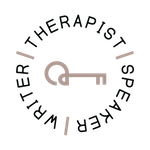Our Brains on Discomfort
I am acutely aware of the discomfort I feel in my body as I read nasty posts from friends and colleagues in my social media feeds. I want to turn it off. In these moments, I have to keep reminding myself that our inability to sit with what is difficult is maddening. It makes us uncomfortable. We don’t like to be uncomfortable. To be able to sit with discomfort AND remain open seems damn near impossible. This is what we are up against in these times--our complete underestimation of our own strengths and our ability to stay with the discomfort long enough to learn from it.
It seems to take very few words these days to ignite our defenses. It is precisely that defensiveness, however, that becomes the slippery slope. As soon as we are in defensive mode, our body kicks into fight, flight or flee. Adrenalin hits our bloodstream. We feel a full-on call to arms. The rational part of our brain (the prefrontal cortex) which usually helps us to regulate emotions and evaluate information is taken hostage, tied and gagged, rendered useless. Our fearful selves highjack our brain, taking over the control center. Our fearful selves have forgotten that discomfort doesn’t equal danger. They believe it means war. In this survival mode, we become all about the “me” not the “we.” There is no room in the command center for the qualities that make us human, things like curiosity, compassion, and creativity. Our fearful selves are preoccupied with staying alive. They have no interest in promoting the humane part of our human experience, the part that separates us from other animals. Their belief is that we can’t be humane if we are dead (fair point, but mistaken premise).
"Discomfort doesn't equal danger". - Angela J. Huebner, Ph.D., LMFT, PC
Why are we so threatened by disagreement, threatened by potential change? Because change brings uncertainty and uncertainty codes in our brain as danger. If we can hold firmly to our beliefs, we create the illusion of certainty, and with it the illusion of safety. And do know, illusion is all it is. We hold the mistaken belief that if we can convince ourselves and everyone else that we are right, we will be able to relax inside. Hit the easy button. We believe we can’t tolerate mental discomfort. Interestingly, we are more than willing to spend thousands of dollars on exercise equipment and classes to change our bodies. No pain, no gain. Why is this an acceptable mantra when it comes to our physical bodies but not our mental ones? That’s a problem. We can’t be defensive and curious at the same time. We can’t constrict and grow. We stay stuck in our own little circle, growing increasingly skeptical and afraid of the “other.” We build our bunker.
This is what is happening in our country now. Even among friends. As soon as we believe someone disagrees with us, we get defensive. We dig in, gripping our ideas like the winning lottery ticket. A difference in opinion hits us like a full blown nuclear attack. While the defensiveness is an automatic response, it doesn’t’ have to be the final solution. We can learn to be self-aware enough to notice our defensiveness, and then remind ourselves that discomfort doesn’t mean death. We are all on the same side here. Really. We can invite our fearful selves to lower their weapons.
From this stance, we can allow ourselves to be curious about a different point of view. Given that we are all on the same team, it seems we should respect each other enough (especially those we count as friends!) to truly want to understand. We may or may not agree, but until we truly understand, we honestly can’t say. This curiosity promotes a genuine listening—one in which we are truly considering each others’ point of view. Not the kind of “listening” that happens when we hear the opening statement and begin to formulate our rebuttal, mentally checking out mid-sentence. It’s the kind of listening that we really take in, chew on, consider. This is how we grow. This is how we change.
